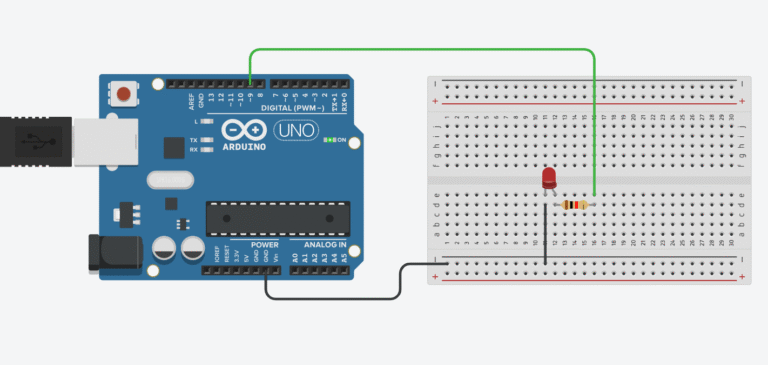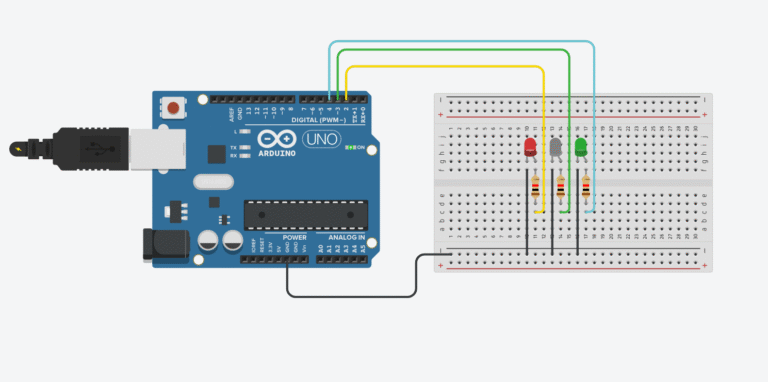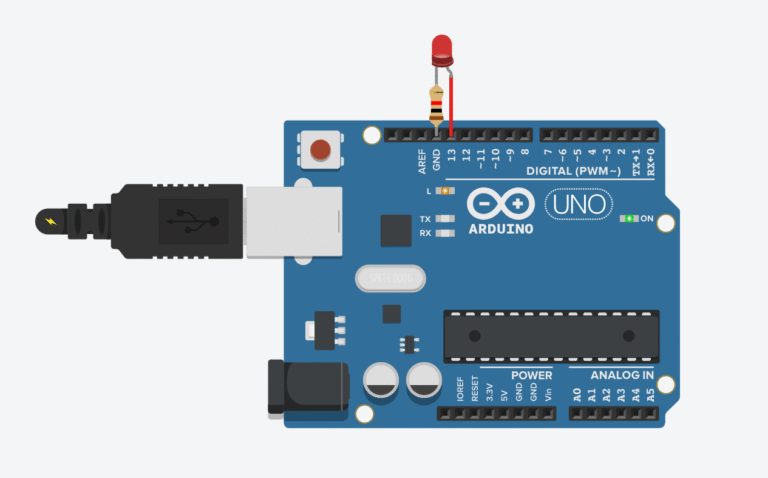Introduction
When you’re working with Arduino, choosing the right board can make a big difference — especially when your project starts to grow. The Arduino Uno is a great starting point for beginners and small projects. But when it comes to more complex builds that involve a lot of inputs, outputs, or memory, the Arduino Mega might be a better fit.
In this post, we’ll compare the Uno and Mega side-by-side, and help you decide which board is better suited for your project.
What is Arduino Uno?
The Arduino Uno is the most popular board in the Arduino ecosystem. It’s great for learning how to build circuits, write simple code, and run beginner-level projects. With the ATmega328P chip, it has enough pins and memory for most small-to-medium projects — such as blinking LEDs, controlling servo motors, building line-following robots, temperature/humidity monitors, Bluetooth-controlled cars, or obstacle-avoiding robots.
This post may contain affiliate links. If you purchase through these links, I may earn a small commission at no extra cost to you. It helps support this blog and keeps the projects coming—thanks for your support!
Want to get started with the Uno? Here’s the Arduino Uno Kit I recommend – perfect for beginners and great for most basic projects.

Key features:
- ATmega328P microcontroller
- 14 digital I/O pins (6 PWM)
- 6 analog input pins
- 32 KB flash memory
- USB Type-B connection
Perfect for: learning, prototyping, and everyday Arduino projects.
Want to see this board in action? Check out my video using the Arduino Uno for a Bluetooth car project
What is Arduino Mega?
The Arduino Mega 2560 is designed for projects that need more pins, more memory, or more serious multitasking. It’s much larger than the Uno, and is powered by the ATmega2560 chip.

Key features:
- ATmega2560 microcontroller
- 54 digital I/O pins (15 PWM)
- 16 analog input pins
- 256 KB flash memory
- 4 hardware serial ports
- USB Type-B connection
Perfect for: 3D printers, CNC machines, multi-sensor systems, or advanced robotics.
📦 If your project needs more pins and more power, this Arduino Mega 2560 Kit has everything you need to build bigger and more complex systems.
What’s the Difference Between Uno and Mega?
| Feature | Arduino Uno | Arduino Mega 2560 |
|---|---|---|
| Microcontroller | ATmega328P | ATmega2560 |
| Flash Memory | 32 KB | 256 KB |
| Digital I/O Pins | 14 (6 PWM) | 54 (15 PWM) |
| Analog Inputs | 6 | 16 |
| Serial Ports (UART) | 1 | 4 |
| Size | Compact | Large |
| Breadboard-friendly | ✅ Yes | ❌ No |
| Price (avg) | ~$5–8 | ~$8–12 |
| Best for | Learning, simple projects | Complex builds, robotics, CNC |
Why Uno might not be enough for some projects
Let’s say you’re building a 3D printer using Arduino. The system needs to control:
- 4 or more stepper motors (X, Y, Z, extruder)
- Endstop sensors
- Heating elements
- A display screen (LCD + rotary encoder)
- SD card reader
- And maybe Wi-Fi or SD logging
With only 14 digital I/O pins and 1 serial port, the Uno quickly runs out of room — both physically and in terms of memory. It can’t handle everything at once.
That’s where the Mega shines. It gives you:
- 54 digital pins (you won’t need them all, but you won’t run out)
- 4 serial ports to communicate with LCD, modules, or even a second board
- 256KB flash memory → for more complex firmware like Marlin (used in 3D printers)
Other examples where Uno is not enough:
- Robotic arms with 6+ servos and multiple sensors
- Custom MIDI controllers or synths with dozens of buttons
- Multi-sensor automation (e.g. smart greenhouse, CNC machine)
If your project looks like a jungle of wires and modules… go Mega.
Still deciding? This Arduino Starter Kit includes an Uno board, breadboard, sensors, and all the parts you need to follow along with most tutorials – great for learning the basics from zero.
When to Choose Uno vs Mega
Choose Uno if:
- You’re just starting with Arduino
- Your project has fewer sensors or modules
- You want something small and breadboard-friendly
- You care about tutorials, community support, and easy debugging
Choose Mega if:
- You need lots of pins for motors, sensors, or displays
- You’re building something large or complex
- You need multiple serial ports
- You want more memory for larger programs
My Take based on personal experience
I personally use the Uno for testing ideas quickly, especially when I only need a few I/O pins. But for big builds like robotic arms with 5–6 servos, or when I’m wiring up 10 sensors at once, the Mega is a no-brainer.
Uno is like a Swiss army knife.
Mega is like a full-on toolbox.
Still not sure what to pick? I’ve linked the kits I personally use — feel free to check them out. And if you’re stuck, just drop me a message. I’ve been there too
Recommended Kits for Beginners:
- Elegoo Uno Super Starter Kit – perfect for learning and building
- Solderless Prototyping Breadboard Kit
- LED Project Pack




